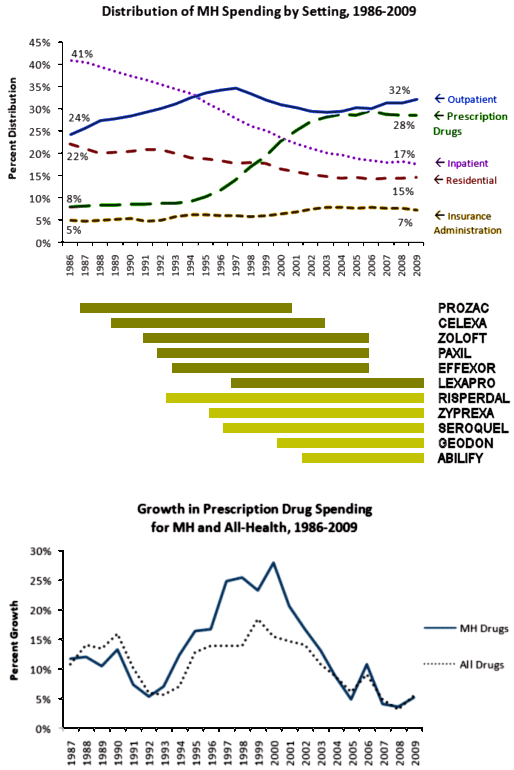In the Fall of 2012, having had a chance to look at the raw numbers for the first time, I sent a series of posts to the Ethics Committee of the American Academy of Child and Adolescent Psychiatry along with a request that they consider retracting their article. I had written Dr. Andres Martin the year before [letter], but he hadn’t responded. Here’s my 2012 letter:
|
To: The American Academy of Child and Adolescent Psychiatry Ethics Committee
Date: September 22, 2012
In 2001, the JAACAP published an article on the use of Paroxetine [Paxil] in adolescent depression, now known as Study 329:
by MARTIN B. KELLER, M.D., NEAL D. RYAN, M.D., MICHAEL STROBER, PH.D., RACHEL G. KLEIN, PH.D., STAN P. KUTCHER, M.D., BORIS BIRMAHER, M.D., OWEN R. HAGINO, M.D., HAROLD KOPLEWICZ, M.D., GABRIELLE A. CARLSON, M.D., GREGORY N. CLARKE, PH.D., GRAHAM J. EMSLIE, M.D., DAVID FEINBERG, M.D., BARBARA GELLER, M.D., VIVEK KUSUMAKAR, M.D., GEORGE PAPATHEODOROU, M.D., WILLIAM H. SACK, M.D., MICHAEL SWEENEY, PH.D., KAREN DINEEN WAGNER, M.D., PH.D., ELIZABETH B. WELLER, M.D., NANCY C. WINTERS, M.D., ROSEMARY OAKES, M.S., AND JAMES P. MCCAFFERTY, B.S.
Journal of the American Academy of Child and Adolescent Psychiatry, 2001, 40[7]:762–772.
Abstract
It has been widely seen as the paradigm for a period in psychiatry when we were at our worst – an industry financed, ghost-written article that made claims of both efficacy and safety that were unsupported by its data. The article has been the centerpiece for numerous successful legal suits, the most recent being a $3 Billion settlement by GSK with the DOJ in which they admit all allegations. Calls for retraction of this article began a decade ago, but have been repeatedly rejected – at first by defending this indefensible article, then later for unclear reasons, likely political, related to a fear of embarrassing the Editor, the AACAP, and the "Authors" [many of whom remain active in the organization].
Psychiatry is in decline, largely because the increasing awareness of the extensive alliance between the pharmaceutical industry and academic psychiatry has undermined confidence in the traditional ethic of medicine. Fledgling moves to reform the extensive conflict of interest problems in our specialty, however, will have no traction if organized and academic psychiatry refuse to acknowledge the problem in need of reform. Child and Adolescent psychiatry is at the center of the growing storm of complaints about over-medication, particularly of children.
Your predecessors have refused to retract this article, saying it is factually correct, or that the Journal is not responsible for its distortions, or worse, saying nothing. It is not factually correct. It was published over the objections of peer reviewers. And saying nothing is tantamount to treating cancer by watchful waiting. It has earned its right to be retracted in courtroom proceedings and media across the land. If you’re not familiar with its history, I’ve appended a series of blog posts about it to the end of this email. Alison Bass’s Pulitzer Nominated book Side Effects is another good resource.
I urge you to familiarize yourself with this story if you don’t already know it, and implore the Ethics Committee to retract Study 329 from the literature. It’s the right thing to do and a right time to do it.
John M. Nardo MD
retired psychiatrist and psychoanalyst
-
-
-
-
-
-
-
-
-
-
-
-
-
|
I thought this letter had a chance of being well received. The 329 data was now public and I’d done my homework, The $3 B suit had just been settled by GSK. I used my long name and spell checked it several times. Looking back, rereading it, the "familiarize yourself with this story" part was a little cheesy, but otherwise not bad for a non-English Major. The letter was received warmly by the President of the AACAP, the President Elect, and the Chair of the Ethics Committee who assigned a member of the Committee to work with me, presumabely to present it at the meeting coming up in several months. We had several amicable exchanges. I sent her Alison Bass’s book. All very civilized.
The meeting came and went and I heard nothing. Somewhere down the road, I got a terse email. It was going to be handled by the editor. No action taken. It was a surprise – reading more like a second notice on an overdue water bill than the collegial and professional emails earlier. That’s the last I heard from them. Now, in retrospect, I read this:
Tuesday, January 22, 2013 • 12:00–1:00 pm EDT/11:00 a.m. – 12:00 p.m. CDT
Conference Call Minutes
Council members in attendance: Martin J. Drell, M.D., President; Paramjit T. Joshi, M.D., President-Elect; David R. DeMaso, M.D., Secretary; Steven P. Cuffe, M.D., Treasurer; Louis J. Kraus, M.D., Assembly Chair; Laurence L. Greenhill, M.D., Steven Adelsheim, M.D., Mark Borer, M.D., Stephen Cozza, M.D., Deborah Deas, M.D., Joan Luby, M.D., Neal D. Ryan, M.D., Jennifer S. Saul, M.D., Margaret L. Stuber, M.D., Sourav Sengupta, M.D., M.P.H., Marika Wrzosek, M.D.
Council members absent: Warren Y.K. Ng, M.D., Harsh K. Trivedi, M.D.
Others participating: Andrés Martin, M.D. Staff: Heidi B. Fordi, Mary Billingsley, Jill Brafford, Larry Burner, Yoshie Davison, Colleen Dougherty, Genifer Goldsmith, Rob Grant, Earl Magee, Kristin Kroeger Ptakowski

Study 329: Andrés Martin, M.D., M.P.H
As an author of the JAACAP article, Keller et al 2001, Neal Ryan recused himself from this conversation. Dr. Martin briefly summarized the situation regarding Study 329. He and the JAACAP Action Editors [AEs] reviewed this issue over the past 6 months, and shared a letter outlining the situation, steps taken, and their determinations, with Academy leadership. In short, Study 329 and the article published in JAACAP about it, Keller et al 2001, was mentioned in a federal lawsuit against GlaxoSmithKline [GSK], but none of the criminal charges related to the article itself. This is the 4th time the Journal has conducted an inquiry into the circumstances surrounding Study 329 and Keller et al 2001 since its publication, and it has again been determined that while the article is not perfect, the ethical concerns raised by the GSK lawsuit are not substantiated. The AEs consulted with many individuals in making their determination, including several lawyers and editors of other academic journals, and have decided not to take any action against the paper. Both the Academy and the Journal received inquiries from the press about the situation and what was to be done, and Dr. Martin and the AEs believe that there is little to gain in responding and that doing so would simply ‘fuel the fire.’
ACTION: IF COUNCIL MEMBERS RECEIVE ANY INQUIRIES ABOUT STUDY 329, PLEASE DIRECT THESE TO ANDRÉS MARTIN.
hat tip to 1boringyoungman… 
I don’t do moral outrage very well, but this would be a good place to practice if I wanted to learn. That report to the AACAP Council reads like they’re making a policy decision about pesky door-to-door salesmen. The Ethics Committee was waved off from above, clearly. It’s hard to imagine him saying "
but none of the criminal charges related to the article itself" and "
the ethical concerns raised by the GSK lawsuit are not substantiated" with a straight face, much less to the committee. Then I remembered a peculiar episode that happened around the same time though I hadn’t connected the dots. In the fall of that year, the
Chronicle of Higher Education published an article [
Academic Researchers Escape Scrutiny in Glaxo Fraud Settlement] pointing out that the academics who signed on to Paxil Study 329, a prominent part of the $3 B settlement, had gotten off without a even a hand-slap [see
the only enduring contract…]. In response, GSK’s lawyer wrote this letter to the
Chronicle:
Chronicle of Higher Education
October 1, 2012
To the Editor:
As counsel for GlaxoSmithKline LLC in its recently concluded settlement with the United States government, I write to correct some significant factual inaccuracies in "Academic Researchers Escape Scrutiny in Glaxo Fraud Settlement" [The Chronicle, August 6]. The piece focuses on a peer-reviewed journal article published in 2001 in the Journal of the American Academy of Child and Adolescent Psychiatry reporting the results of a clinical trial sponsored by GlaxoSmithKline [Study 329] of Paxil® [paroxetine hydrochloride] for the treatment of major depressive disorder in adolescents [the article was "Efficacy of Paroxetine in the Treatment of Adolescent Major Depression: A Randomized, Controlled Trial," by M.B. Keller et al., in the July 2001 issue]. Unfortunately, your piece incorrectly states that, as part of its government settlement, GlaxoSmithKline admitted that the journal article "was part of the fraud" and "constituted scientific fraud." In fact, GlaxoSmithKline made no such admission and vigorously disputes that the journal article was false, misleading, or fraudulent.
As part of its settlement with the government, GlaxoSmithKline pleaded guilty to a misdemeanor violation of federal law related to the marketing of Paxil for use by patients under 18, an unapproved, "off label" use for Paxil. While the law permits physicians to prescribe medications for such off-label uses, manufacturers are not permitted to market them for such purposes. The charging document filed by the United States, known as an information, contains many allegations that are either inaccurate or incomplete, that tell only part of the story, and that draw unwarranted conclusions from disputed facts. Throughout the investigation, the settlement process, and the guilty-plea proceeding, GlaxoSmithKline made clear to the government and to the court that it did not agree with all of the factual allegations made in the information. In particular, GlaxoSmithKline has consistently denied and disputed the allegations that the journal article was false or misleading. Nothing in the settlement or the guilty plea has changed GlaxoSmithKline’s position on the journal article. Most important, GlaxoSmithKline did not admit and has not admitted that the journal article was part of any fraud or that it was false or misleading.
Your piece also incorrectly states that the journal article "was actually written by Glaxo-hired authors to overstate the benefits and understate the risks of a highly profitable Glaxo drug." While GlaxoSmithKline did hire a medical writer to provide editorial assistance to the clinical investigators, a fact that the journal article itself acknowledged, control over the contents of the manuscript remained at all times with the clinical-investigator authors who provided substantial comments on and input into the manuscript. GlaxoSmithKline believed then and continues to believe that the journal article reflects the honestly held views of the clinical-investigator authors.
Thomas H. Lee II
Philadelphia
Editor’s note: The federal "criminal information" document in the Paxil case repeatedly describes the journal article as "false and misleading." It also notes that GlaxoSmithKline distributed the article to its marketing department and its sales representatives, who used it to promote the use of the drug for children and adolescents. In addition, the criminal information says that a contractor hired by GlaxoSmithKline wrote the first draft of the article and incorporated changes made in the article by researchers and another GlaxoSmithKline employee. The plea agreement between GlaxoSmithKline and the U.S. Department of Justice states that GlaxoSmithKline "expressly and unequivocally admits that it committed the crimes charged in the information, and is in fact guilty of those offenses."
If you read the
settlement agreement and the
government complaint, their letter doesn’t hold water. Jon Juriedini and Leeman McHenry quickly responded [
‘Any Reasonable Person’ Would See Glaxo Study as Fraud][see also
the only enduring contract…]. Ever since I read that letter from GSK’s lawyer, I’ve wondered why he wrote it. It just makes him look silly to anyone who reads the settlement and complaint. Unlikely any reader of the
Chronicle of Higher Education would see it as anything other that humorous. But now, coming when it did, I wonder if Andrés Martin was feeling a strong pressure to finally retract Paxil Study 329, and GSK wrote that letter cover the authors and the Journal against some kind of legal action, or maybe to justify not retracting it, or to make the authors and journal not ‘thrown under the bus’ by GSK. I even wonder if one of those lawyers Martin mentions consulting wasn’t Thomas Lee, the author of the
Chronicle letter.
I’m not so grandiose as to think that my letter was the impetus for all that wheeling and dealing, for the GSK Chronicle letter, for the AACAP to go silent and dig in its heels even further. Because the call for retraction was coming from everywhere at that time [and ever since]. And I have no notion of the potential legal ramifications of JAACAP retraction the article. But I do feel sorry for the members of the AACAP Ethics Committee. It must be mighty disillusioning to be preparing to debate a thorny ethical issue like this one and to essentially be taken off the case and have its domain simplified down to "the ethical concerns raised by the GSK lawsuit are not substantiated" by a decree from above. What’s an Ethics Committee for if it’s not to deal with such matters?
Whatever all of this means in the end, the American Academy of Child and Adolescent Psychiatry and it’s Journal have lost sight of the reason they exist – to take care of the needs of mentally ill kids, and to do no harm. Neither the accepting editor, Mina Dulcan, nor her successor, Andres Martin, seem to have grasped these fundamentals. They’ve had numerous opportunities to make things right, and they’ve declined those chances, even now blocking anyone else from taking a look [like their own Ethics Committee]…
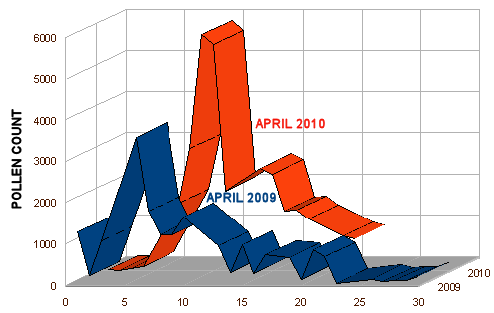
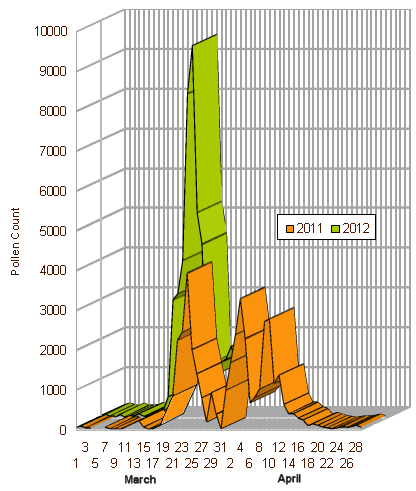
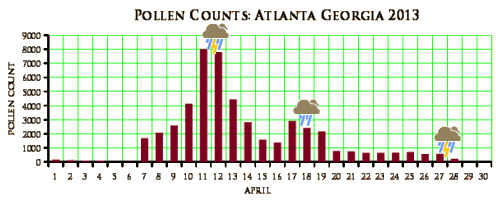
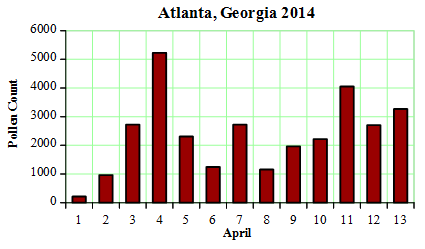


 Today we found out that Tamiflu doesn’t work so well after all. Roche, the drug company behind it, withheld vital information on its clinical trials for half a decade, but the
Today we found out that Tamiflu doesn’t work so well after all. Roche, the drug company behind it, withheld vital information on its clinical trials for half a decade, but the 